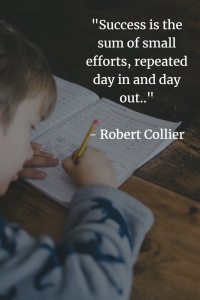Self Control

Self-control refers to the ability to regulate one’s thoughts, emotions, and actions in a way that allows for the achievement of long-term goals and resistance to immediate temptations. It is a crucial aspect of behavioural choice and emotional intelligence and has been associated with various positive outcomes such as improved health (both mental and physical), academic and career success, and better relationships with others. In contrast, individuals without self-control are vulnerable and often influenced by others and the events surrounding them, leading to feelings of hopelessness and helplessness. Failing to maintain adequate self-control can have negative effects on many desired goals and social experiences. As written, someone without self-control is a house with whose doors and windows are knocked out to protect them, making such a person vulnerable.
Self-control is particularly important in children, as success in life tasks depends critically on their proficiency in this skill and will improve their decision-making and effectively managing day-to-day life. Children who lack self-control may struggle to control their impulses, modulate their emotional expressions, and ultimately face difficulty. Self-regulation, which is the ability to control one’s thoughts, feelings, and actions in a way that promotes personal goals, is a related concept that plays a critical role in building self-control.
To help children build self-control, parents can focus on three principal areas: impulse control, emotional control, and movement control:
- Impulse control involves the ability to manage urges and impulses and think through consequences before acting. You can help your child develop this skill by encouraging them to stop and think before acting, reflect on their actions, and focus on goal pursuit. It is about trigger and response or react. What is your child’s ability to stop and think before acting? Impulse control lets children think through consequences before they act such as running into the street without looking. The aim here is to help you child develop the ability to put on “mental brakes” and stop and think before doing or saying something. You can work with your child in theses area such as stopping and asking the child to pause, imagine what might happen — will I get in trouble or will I get hurt — and make a choice. If the child had acted already, you can still help the child to reflect asking the child that if he/she had paused, think, will a different choice had been made, and if so, why? Then you can highlight the lessons of why it is important to not to react to impulses but to response after pausing and thinking through the consequences. Another aid will be to help the child with goal pursuit as it is essential and allows individuals to delay gratification and stay focused on long-term objectives. Like athletes, the child could look at the accolades of win to endure the strain and pain of practice instead of giving up. As parents or guardian, you need to also avoid encouraging depletion of self-control by feeding immediate gratification. A child taught to delay gratification and regulate their emotions may develop stronger self-control skills later in life. Simple things like controlling a child’s interruption can make a lot of difference. Children have the tendencies to interrupt a lot, talk too much, or speak out of turn and they are not to blame for these tendencies. From birth, their cries elicit our attentions, and they grow up believing the can always interrupt us for attention. As the grow up, you need to change that mindset and bring in self-control.
- Emotional control is the ability to regulate emotional responses, manage conflicts, and communicate effectively. Parents can help children build emotional control by fostering self-efficacy and helping them manage their feelings, cope with disappointment and criticism, and stay focused on their goals. Children need to learn how to deal with anger, frustration, disappointment, and other emotions that can trigger impulsive behaviour. A child who struggles with emotional control may find it hard to manage strong emotions hence may overreact, experience lasting bad moods, get overwhelmed by the intensity of their feelings, unable to stay calm and composed under pressure, and avoid impulsive or destructive behaviours. The child needs to learn to manage feelings and keep going even when upsetting or unexpected things happen or cope with a minor disappointment or criticism and move on. They should not get distracted or overwhelmed by feelings and learn to get past something upsetting even as small as losing a game or doing poorly on a test. The other flipside is that a child might get overexcited and have trouble calming down from a happy mood such as playing games or even food. This means helping them to understand their feelings and how to regulate them. They also need to learn how to handle stress and anxiety, which can affect their ability to make good decisions.
- Movement control refers to the ability to control the body’s movements and sit still when necessary, and parents can help children develop this skill by creating a calm and structured environment, setting clear expectations, and encouraging physical activity. This is typical evidence in restlessness and finding it difficult to remain still and can be worsen by factors such as stress, fatigue, and peer pressure. A child with movement control will helps them stay out of other people’s personal space making it much easier to do what is asked of them, like sitting through a meal or waiting in line. All children have trouble with movement control at some point as it is hard to hold still when so full of energy and excitement. As the grow, most children outgrow that restlessness over time. One of the challenges of today is that children are increasingly spending long hours playing games even late into the night and it can lead to stress and hyperactivity. A child who is under a lot of stress or are sleep deprived may have reduced self-control abilities becoming more restless. Work with the child through practice and repetition to develop and strengthen control skills can help individuals improve their abilities over time. Teach the child to sit still, wait in line, take turns in ways that may seem simple and self-control will develop over time. Teaching the child to sit through events such as a performance or church service without moving about can help build movement control. A simple thing like asking a child to use the restroom before a service will eliminate the excuse of using the restroom to be overtly active, moving about and but instead sit through the service.
In gaining better self-control one thing is common, it is about choosing between an option that yields a smaller immediate reward (pleasant taste of food, fun from watching TV or pleasure playing game instead of sleeping) and an option that yields a larger but delayed reward (staying healthy, academic excellence, improve alertness and attention). Research has shown that people with strong self-control have better health, relationships, finances, careers, and are less likely to have problems with overeating, overspending, smoking, alcohol or drug abuse, procrastination, and unethical behaviours. Overcoming temptation also seems to be intrinsically rewarding – people with high self-control are also more satisfied with their lives and experience their lives as more meaningful, and that is what we want for our children. It is important to bear in mind that self-control is not just about resisting temptations or delaying gratification, but also about following through on our commitments, doing what we say we will do when we say we are going to do it, and sticking to our goals.
It is important to note that self-control is not something that can be developed overnight. It takes practice and repetition over time to build strong self-control skills. As parents and caregivers, we need to be patient and supportive as we work with children to develop this value. We should also model self-control ourselves, as children learn by watching and imitating those around them. In conclusion, developing self-control in children is essential for their success in many areas of life. It involves teaching them impulse control, emotional regulation, and movement control, as well as helping them to set goals, follow through on commitments, and make good decisions. With patience, practice, and support, children can develop the self-control skills they need to thrive.






